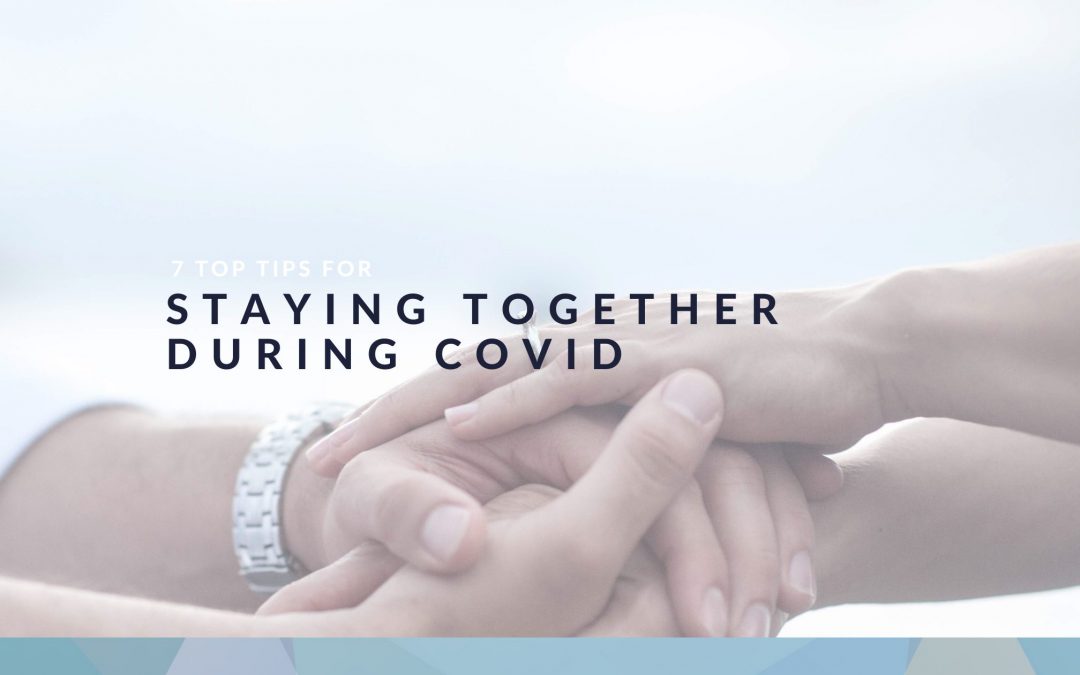
A man is listening intently to a recorded message informing him of his options during lock down. He hears “You can A. stay at home with your partner and child or B…” and before option B is revealed he answers “B”. This is one of many jokes circulating as quarantine lockdown began and now continues with Tweets joking “You can’t spell divorce without COVID.” The centre of the comedy of course is that some couples thrust into spending excessive amounts of time at home together would not go the distance. Back in my grandparents day they could avoid this until retirement, when suddenly grandma was learning from grandpa that the way she had cleaned for their entire 40 plus years of marriage was “incorrect”, that they were suddenly ‘under each others feet’ and the shed became where you’d find grandpa even if there was no ‘fixing jobs’ that needed to be done.
Now a virus has and continues to place that same pressure (plus some) onto relationships and experts are concerned about the long-term effects to initiate relationships.
Weeks ago there were reports of a surge in divorce applications in the Chinese city of Xi’an, the home of the terracotta warriors, due to couples been forced into close quarters for long durations. This already mirrors a trend in the West where after Christmas and summer holidays divorce rates increase due to couples spending long periods together.
The key area of concern already expressed by the Australian government is that of domestic violence. Experts have issued warnings that the pandemic and associated stressors of more time together, uncertainty, isolation via loss of connection from support networks and job loss could trigger more violence where the victim is isolated with perpetrator with little to no access to support.
Conflict created by clashes in coping styles
You don’t need to be a psychologist to see that this immense amount of pressure will strain healthy relationships, and clearly demonstrate where previous weaknesses are in a troubled relationship. Common threats generally have two outcomes, to unify or to divide. A key criteria for reaching breaking point is how you cope with the crisis. For example if your partner wants to stay abreast of all announcements and is glued to their mobile device scanning the news apps for the latest and most relevant information (their coping style) but you are coping by deliberately not engaging with the issue then you can see the high probability for a disagreement that with the added stressors (discussed above) it could lead to an argument. A conflict is most likely when you consider the other fuel added to the fire, for example, couples now adding home-schooling to their roster (in my house, my days have been extended by 9 hours), caring for elderly parents, job losses, stock market crashes, financial insecurity and massive uncertainly about, well about everything. Whenever there is an argument someone can feel unsupported and alone, which if left to foster can lead to very real feelings of disconnection, which experts believe will cause “irreversible damage” to the individual and the relationship.
In all this doom and gloom, what can you do to ‘keep calm and carry on’?
Firstly, address the elephant in the room
Do you still want to be with the person you are coupling with? Life happens and we forget to check in with what we truly want as well as what our partners want the seeds of which grow division. Over time the person you thought you were (or who you thought your partner was) may have changed. If they’re not who ‘floats your boat’ maybe its time to go? But don’t blame the virus. Maybe you or your partner isn’t who you thought you/they were and now you get to fall in love with them all over again! But don’t blame the virus. What an opportunity to gain so much time back in our lives and to have the opportunity to be self introspective to re-engage with ourselves and the people we share our world with. On a positive, if you rediscover this is the person you want to be with, let them know and celebrate it! Celebrate by rejoicing in one of their idiosyncrasies. Take them that cup of tea that you know they love. It’s the little things!
Focus on the time to connect
Other ways that you can shift from surviving to thriving in spite of the social upheaval and massive uncertainty are to focus on the silver lining of having the time to focus on feeling connected (even virtually) and what that really means in terms of the human condition. How to communicate with your partner is of vital importance and two key elements are speaking with them from a place of neutrality (non-judgement) and to be open and accessible to your feelings, which you should be discussing. If you want to know the eight tenets to a real relationship register here for my soon to be released book, The eternal worrier’s/warrior’s smile.
Practice a trusting and optimistic view in life. How important is trust?
A 2014 study published by the American Academy of Neurology associated high levels of late-life cynical distrust, i.e. a general distrust of people (and their motives), to a greater risk of dementia and a higher mortality rate compared to those who were more trusting, even after accounting for other risk factors like age, sex, health status (certain heart health markers, smoking status) socioeconomic position, and lifestyle.
(Neuvonen E et al Late-life cynical distrust, risk of incident dementia, and mortality in a population-based cohort Neurology. 2014 Jun 17;82(24):2205-12)

One more tip,
Understand that self-distancing is not the same as disconnection.
Connection can still be achieved via text, email, apps, phone, FaceTime, a new app I recently learned about together which is great for children to stay connected with grandparents, other relatives and friends. Do not, under any circumstances emotionally seclude yourself from your partner or family.
So for the many of you who have been asking what else I have been doing, it includes investing in the emotional health and wellbeing of myself and my family. We are all taking our pro•m•emo essences, performing UEFT at least once a day (more when needed) and providing FlameTree sessions to ourselves and remotely to clients so that we ALL remain balanced and supportive to each other whilst living optimally and living purposefully. I encourage you to do the same and be adaptable so that we ALL get better than good at emotional health care, and the emotional health first-aid that pro•m•emo , UEFT and FlameTree can deliver.
Live optimally. Live purposefully.
7 top tips to continue keeping together through coronavirus-SARS-Covid-19
- understand coping styles are different and can create conflict
- address the elephant in the room
- focus on time to connect
- communicate openly and neutrally
- stay trusting
- understand that self-distancing is not the same as disconnection – stay connected
- Use ROAs (pro•m•emo, UEFT and FlameTree)
Rhett Ogston has more than twenty years experience in the field of healing. He has lived, studied and worked in Australia, America, Holland, China, Thailand, Fiji and Canada. Rhett simultaneously ran two successful clinics in Ivanhoe, Victoria and Chapel Hill, Queensland. Having trained in science, Chinese medicine and many more qualifications, he now trains students and professionals in bioenergetic medicine and healing.
He is the director and founder of Qi Health Clinic, and this is where he developed and implemented Rhett Ogston Applications, which include: FlameTree: the personal development & healing system; Universal Emotional Freedom Technique (UEFT); pro∙m∙emo (Process my Emotions); Mind Enhancement & Memory Optimizer (MEMO) and 409 Degrees – Just hold it.
Rhett is committed to serving people, and has the knowledge, intuition, understanding, skill and heart to reach out to people. As a student of life, Rhett continues to deepen and expand his understanding, knowledge and awareness. As a master of life, Rhett imparts his wisdom, noetic qualities and experiences to his students and his handpicked dedicated team of elite Qi Health Clinic healthcare professionals.

